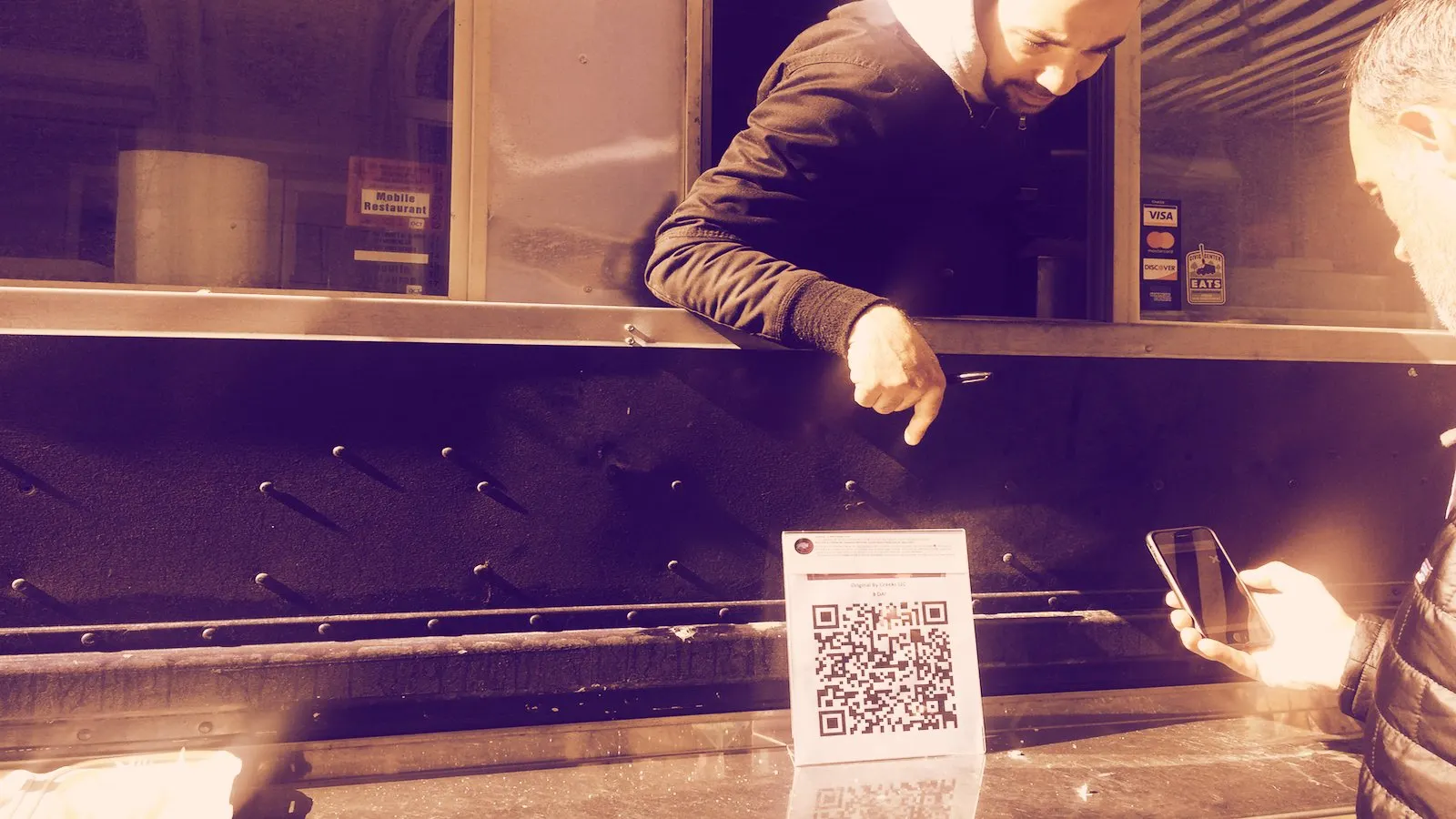DENVER — A new stablecoin that can be exchanged at selected food and drink vendors was unveiled at the annual ETHDenver conference Friday.
The currency, which attendees received via temporary “burner wallets," was built on a “side-chain” of crypto startup MakerDAO’s DAI stablecoin. The idea, explained Steven Becker, MakerDAO’s CEO, was to demonstrate an alternative to carrying your "immense wealth with you on your phone.” Similar local cryptocurrencies, he added, could be sold by vendors at a discount to the dollar, drawing in customers looking for a relative bargain—much like favorable exchange rates entice tourists.
The “buffiDAI” coin was named for a buffalo, an animal, which for reasons that elude your correspondent, is the mascot of ETHDenver. It was unclear at presstime why the coin seemed to think that “buffalo” was spelled “buffilo.”
Nonetheless, having been duly educated by the event organizer on how to spend the crypto, ETHDenver’s hungry gave the buffiDAI a go. At lunch, revellers photographed the QR codes on plastic brooches given to them at the start of the event, generating online wallets from which the vendors’ own QR codes, emblazoned on the sides of their food trucks, could be scanned. This automatically credited the vendors $8 dollars, the price of one meal.
All attendees were allocated up to $24 of buffiDAI to experiment with, though the reviled Decrypt received only $16. Back home in Fishton, that allowance would have barely covered a bucket of Granny Thromstew’s sludge and shoelace pudding — in Denver, however, it enabled your correspondent to purchase from food trucks a spice-laden pork gyro for one lunch, and a mystery-meat ramen for the other.
“It's super easy,” remarked one satisfied, anonymous customer, in the most generic quote of the new century. An unnamed vendor selling Greek street food agreed, saying it was cleaner and more efficient than handling paper money.
Yet others remained unconvinced. “Can’t I just use cash?” asked another anonymous and baffled local.
Meanwhile an anonymous ramen vendor complained about having to “train” perplexed customers, saying he wouldn't use the system elsewhere. “I wouldn’t be around computer nerds who know how to do this stuff,” he said, asking that his identity be withheld to protect his loved ones.

